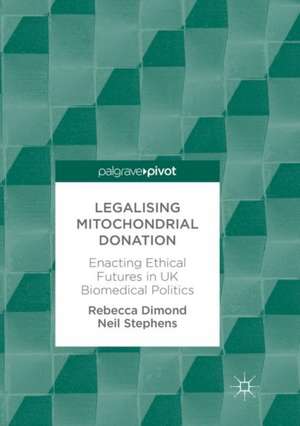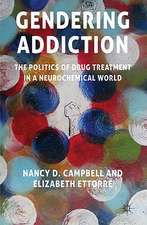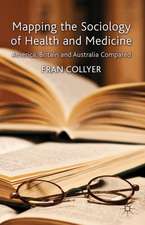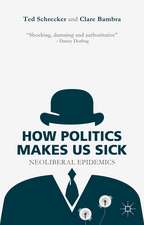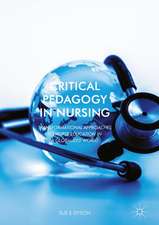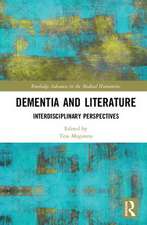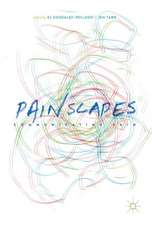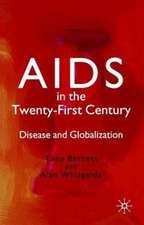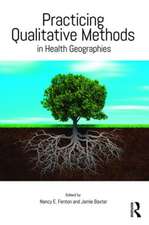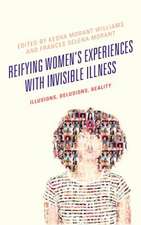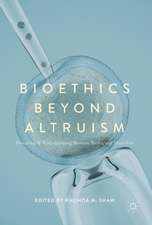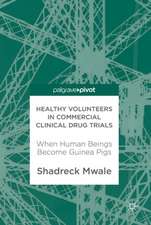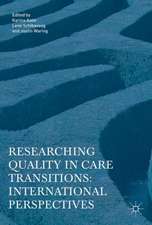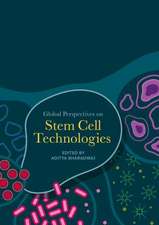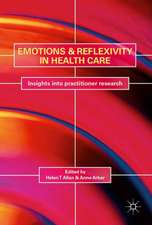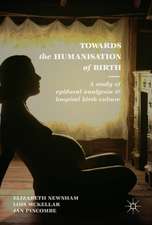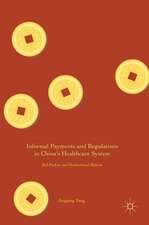Legalising Mitochondrial Donation: Enacting Ethical Futures in UK Biomedical Politics
Autor Rebecca Dimond, Neil Stephensen Limba Engleză Paperback – 18 dec 2018
| Toate formatele și edițiile | Preț | Express |
|---|---|---|
| Paperback (1) | 359.21 lei 6-8 săpt. | |
| Springer – 18 dec 2018 | 359.21 lei 6-8 săpt. | |
| Hardback (1) | 365.61 lei 6-8 săpt. | |
| Springer International Publishing – 3 apr 2018 | 365.61 lei 6-8 săpt. |
Preț: 359.21 lei
Preț vechi: 378.12 lei
-5% Nou
Puncte Express: 539
Preț estimativ în valută:
68.75€ • 71.58$ • 58.10£
68.75€ • 71.58$ • 58.10£
Carte tipărită la comandă
Livrare economică 10-24 martie
Preluare comenzi: 021 569.72.76
Specificații
ISBN-13: 9783030090449
ISBN-10: 3030090442
Pagini: 147
Dimensiuni: 148 x 210 mm
Greutate: 0.18 kg
Ediția:Softcover reprint of the original 1st ed. 2018
Editura: Springer
Colecția Palgrave Pivot
Locul publicării:Cham, Switzerland
ISBN-10: 3030090442
Pagini: 147
Dimensiuni: 148 x 210 mm
Greutate: 0.18 kg
Ediția:Softcover reprint of the original 1st ed. 2018
Editura: Springer
Colecția Palgrave Pivot
Locul publicării:Cham, Switzerland
Cuprins
1. Mitochondrial donation and UK biomedical politics.- 2. Contesting mitochondrial donation: the cluster for.- 3. Contesting mitochondrial donation: the cluster against.- 4. Policy work and legitimacy at Nuffield Council on Bioethics, the Human Fertilisation and Embryology Authority, and the Department of Health.- 5. Campaigning: contested meanings, patient-families, and last minute labours.- 6. The parliamentary debates.- 7. Enacting ethical futures.
Notă biografică
Rebecca Dimond is a medical sociologist at Cardiff University, UK. Her research interests include patient and family narratives, the classification of genetic syndromes, new medical technologies, and the sociology of donation.
Neil Stephens is a sociologist and Science and Technology Studies scholar at Brunel University London, UK. His research interests include embryo politics, tissue engineering, and robotic surgery.
Textul de pe ultima copertă
In 2015 the UK became the first country in the world to legalise mitochondrial donation, a controversial germ line reproductive technology to prevent the transmission of mitochondrial disease. Dimond and Stephens track the intense period of scientific and ethical review, public consultation and parliamentary debates preceeding the decision. They draw on stakeholder accounts and public documents to explore how patients, professionals, institutions and publics mobilised within ‘for’ and ‘against’ clusters, engaging in extensive promissory, emotional, bureaucratic, ethical, embodied and clinical labour to justify competing visions of an ethical future. They describe how this decision is the latest iteration of a UK sociotechnical imaginary in which the further liberalization of human embryo research and use is rendered legitimate and ethical through modes of consultation and permissive but strictly regulated licensing. Overall, this book presents a timely, multi-dimensional, and sociological account of a globally significant landmark in the history of human genetics, and will be relevant to those with an interest in genetics, Science, Technology and Society, the sociology of medicine, reproductive technology, and public policy debate.
Caracteristici
Deals with an issue with great national and global relevance Offers a distinctly sociological take on mitochondrial donation Provides a unique insight into an important and ethically-challenging topic
